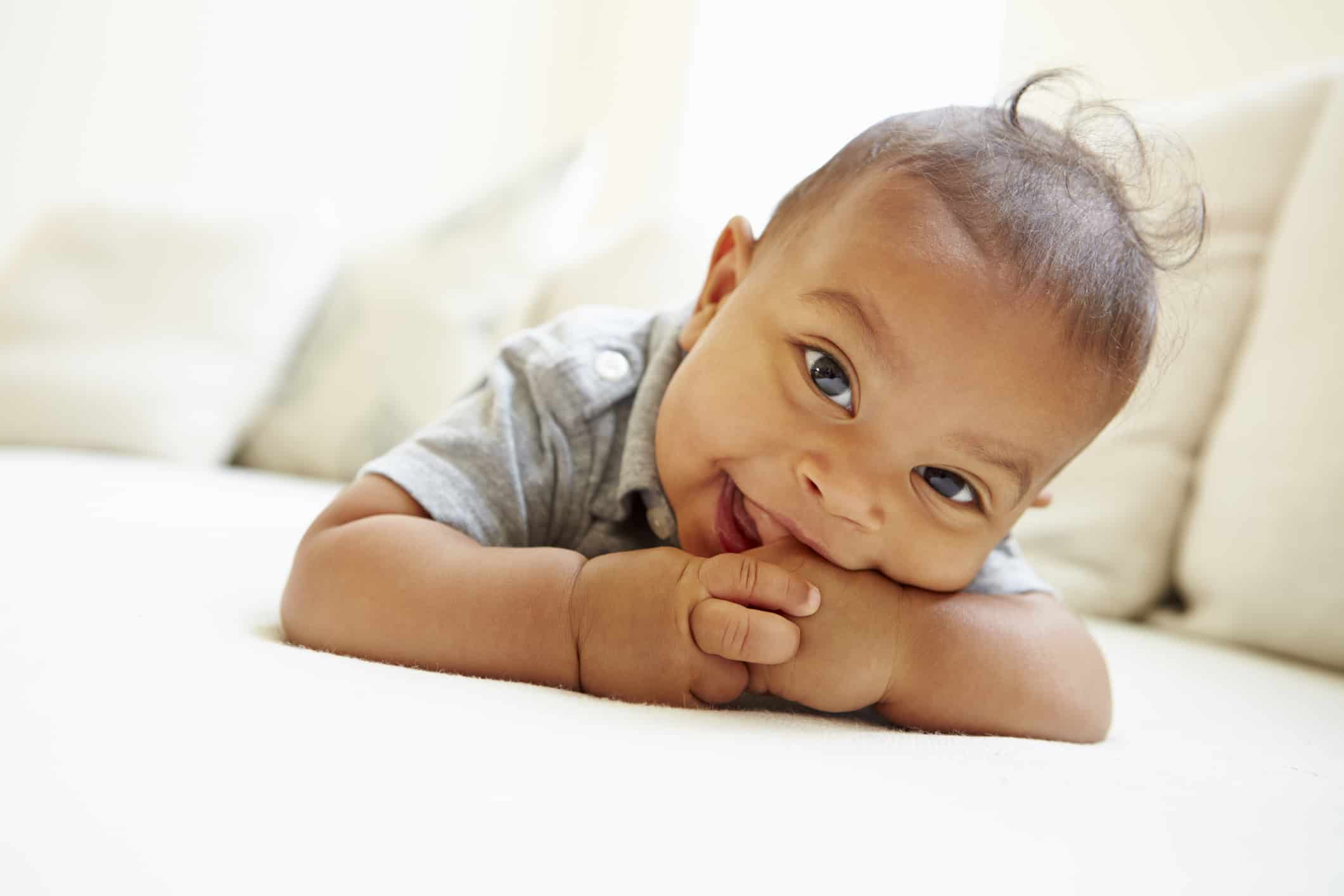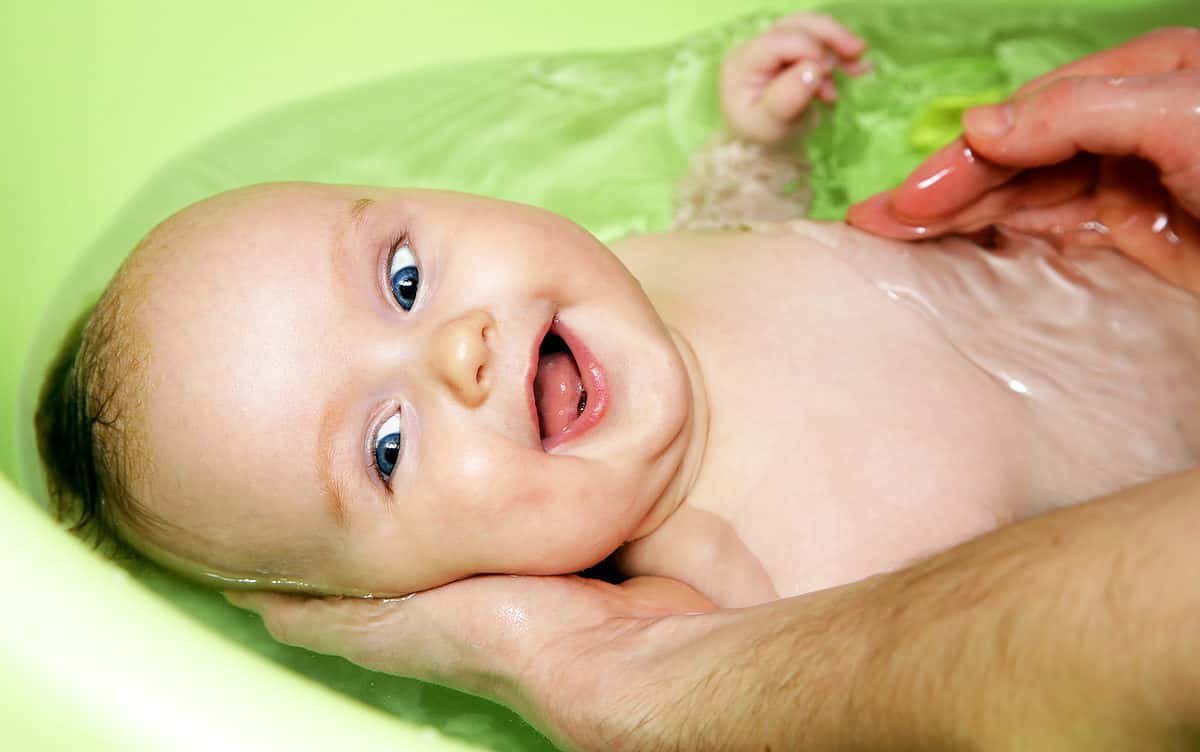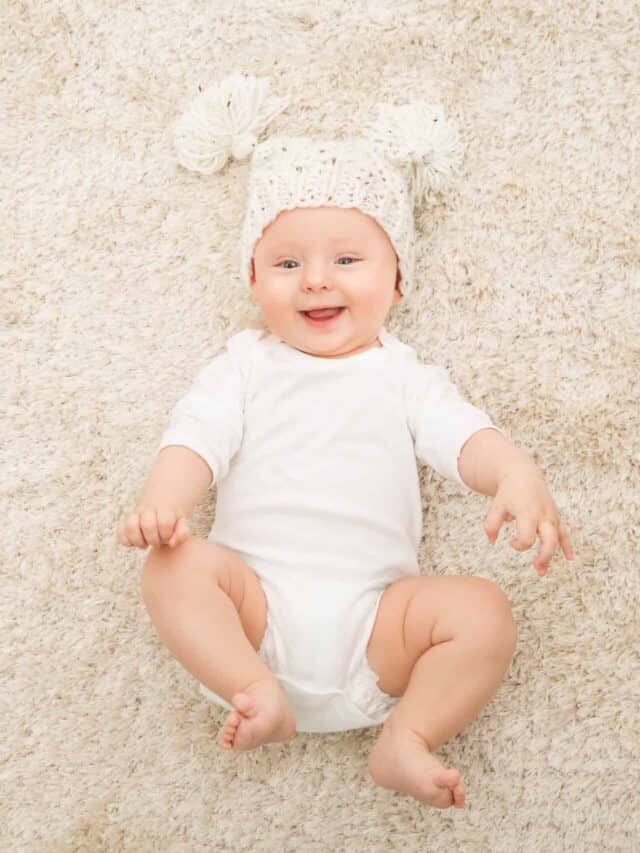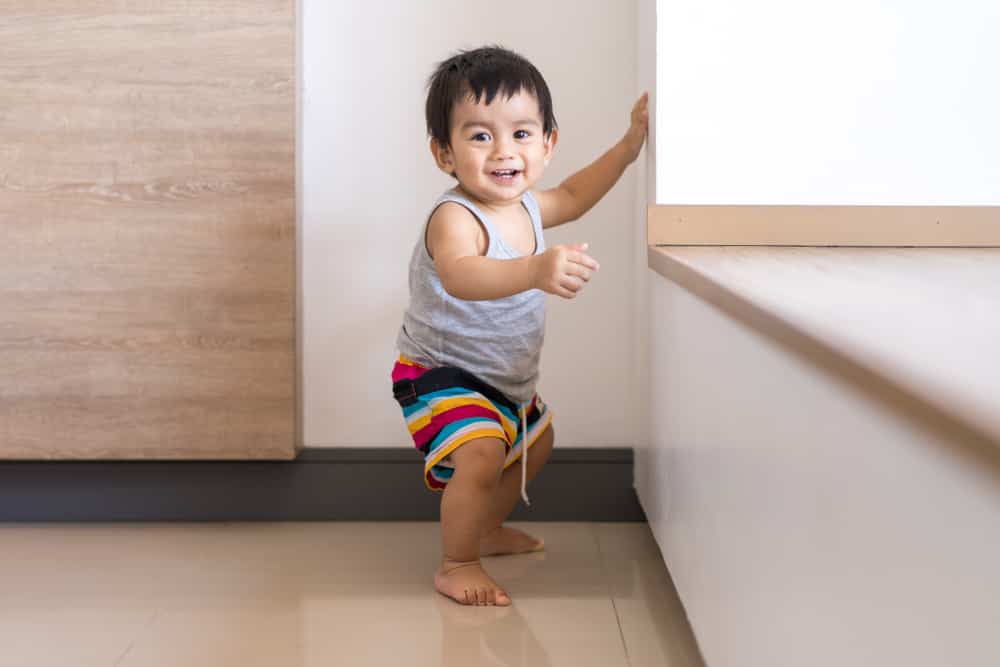

When Should Baby Respond To Their Own Name?
Having a newborn at home is both an exciting and stressful experience for all new parents. Having a baby of your own comes with new beginnings for everyone. One thing that many new parents are curious about is specific milestones for their child. New parents are often curious about when their baby should meet specific physical, emotional, or linguistic milestones. While language milestones are something that can vary from child to child, there are guidelines and milestone markers that various agencies and departments recommend. The short answer is that a baby should recognize their name at some point between 4-9 months of age.
The Centers for Disease Control and Prevention (CDC) states that it is important to pay attention to how your child interacts with the world. How your child plays, speaks, listens, and even walks can tell a parent a lot of information about developmental growth. It is important to note that not all children will reach specific milestones by recommended ages. The CDC states that their milestones are measured by 75% of children or more.
Many parents are left wondering, still, when the developmental age is when a child should begin to respond to their name.
Key Points of a Child's Language Development and Recognition
- Some babies take longer or shorter than others to recognize their own names, so don't stress if your child's language milestones don't align perfectly with what the CDC or your local health ministry's guidelines are. Naturally, if your baby is falling far outside the CDC guidelines you should consult your pediatrician.
- Most children will start to recognize more than just their own name after the 9-month mark.
- There are various ways to help your baby learn their own name faster by using shorter versions of more complicated names, being specific and intentional when speaking with them, and making a visual connection by using their name in front of mirrors and pictures. This won't magically make your child a linguistic super genius, but these tactics be can used as an enrichment tool in their development and a good chance to deepen your bond with the new addition to your family.

©iStock.com/Renars2014
California Department of Education States by 4 to 6 Months
Different studies and organizations recognize different age ranges in which a child recognizes their own name. Some studies point out that some children can recognize and respond to their own names earlier than others.
California's Department of Education indicates that a child can recognize their own name as early as 4 to 6 months. According to their research, at 4 to 6 months children respond to a few different things. For one, they indicate that a baby can begin babbling and moving to gain a person's attention. Children can also respond to a change in a person's voice and changes in a person's facial expression.
In addition, babies begin to mimic adults' gestures by this age range. Babies will copy movements and expressions that adults make toward them.
The biggest milestone that the Department of Education points out is that by 4 to 6 months, a baby looks at you or responds to you when you call them by their name.

The CDC Recommends Babies Respond to Their Name by 9 months
By nine months old, babies begin to get comfortable with their parents. They begin to be a bit more shy with strangers and adults they do not know. As well, they begin to express themselves and their emotions to their parents through facial cues.
The CDC states that at around the nine-month mark, babies begin to react when their parents or anyone else leaves the room. They will cry or grab out for you as you leave the room.
The CDC also recommends that by nine months old, a baby should be able to respond to their own name when being called. However, this does not mean verbally. Instead, by nine months old, when you call your baby's name, they should look at you or toward you.
After 9 Months, Babies Begin to Associate Names With Others, Too
According to Lauren Crosby, M.D., F.A.A.P., babies begin to not only know their own name, but also the names of others around them. This is the age when babies are developing labels for people like their parents and siblings. At 9 to 12 months, babies begin to associate "Mommy" and "Daddy" with their parents, and may even begin to verbally regard other individuals who are in their lives often, such as grandparents or siblings, too.

©SUKJAI PHOTO/Shutterstock.com
How You Can Help Your Baby Recognize Their Own Name
Not all children may reach this development milestone by 4 to 9 months, so there are a few ways that parents can help their babies in this process.
- Remember, some names may be easier to remember or recognize than others. Multi-syllable names can be challenging for a baby to recall or even recite. If your child has a longer name, begin with a shorter version of it until they recognize this.
- Use their name often. When you are giving them something, such as food or changing their diaper, be sure to use their full name. Avoid generic pet names that they may hear often or towards others. By using their name often when you speak to them, children begin to associate themselves with the name.
- Use a mirror. Show your baby themselves in the mirror and say their name while pointing to them. This can allow them to associate themselves with their name, as well.
- Use photos of themselves. By showing them a picture of themselves, they may be able to recognize themselves by their name, too.
- If your child is easily distracted, try to take away any toys and other things that can sway their interests. Take them into a room so that you can call them and see if they will respond to you.
Other Methods to Improve Your Baby's Early Language Skills
Zero-to-Three, a national charity designed to improve the lives of babies and their families has some recommendations to improve your baby's early language development.
- Use Parentese - This style of speech is different from traditional "talk baby." Parentese uses simple language with elongated vowel sounds. I.E. - Hi baby becomes hiiiii baaaaaby.
- Don't talk to your baby but with them - Babies are just little humans and in turn, a great method is to have a full conversation with your baby. Let them "coo" or make gestures after you speak to them. This helps them to understand the 'rules' of speaking and conversations.
- Read, read, and read some more - Various research points to reading to your child helps develop their language skills far into the future. Have your baby point to various items and words in their favorite book and watch them dive into the wonderful world of literature.
- Narrate your day - While it may seem silly at first, narrating your day as you go about household chores, running errands, or even driving the car is a great tactic for developing your child's language skills. The key is to use rich and descriptive words that aid in developing your child's vocabulary and matching words to objects.
If you find yourself feeling anxious or nervous about your baby's language development, fear not. Every baby is different and guidelines are just that. There are no hard and fast rules when it comes to when a baby will recognize their own name. Practice some of the techniques to help them along their growth journey. Of course, if your child is displaying any abnormal behavior or missing serious milestones by months consult your pediatrician for advice.